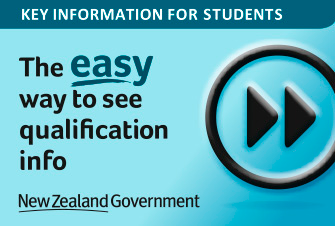Programme overview
If you have a mind for Science and Business and are looking for a versatile degree, then the BCom/BSc conjoint is the programme for you. With 37 undergraduate majors to choose from, you can create a qualification that matches your interests.
As well as strongly emphasising transferable skills to improve your employment opportunities, this programme will expose you to cutting-edge technologies and provide a gateway to independent research. Throughout your undergraduate degree you’ll be taught by world-leading academics.
Programme structure
The BCom/BSc usually takes four years to complete.
You will need to complete a total of 540 points, consisting of:
- 255 points from BCom courses
- 255 points from BSc courses
- 15 points Waipapa Taumata Rau core course
- 15 points from General Education course
In your first year, you will need to enrol one Waipapa Taumata Rau core course, either WTRBUS 100 or WTRSCI 100.
You can choose one major for the BCom component of your conjoint degree, and you would normally take four or five BCom courses each year.
There are eight compulsory courses in the BCom component of the conjoint. Six Stage I and one Stage II core courses, and one capstone course. Stage I core courses are to be prioritized before enrolling in major courses. If you choose two majors for BCom component, you may exceed 255pts and prolong your degree completion.
You can find a degree planner for the BCom/BSc conjoint degree under Degree planning.
Your enrolment for the BSc side of the conjoint will depend on your chosen major(s). You may choose either a single major or a double major in Science. Biomedical Science, Data Science, Food Science and Nutrition, Green Chemical Science, Medicinal Chemistry and Quantitative Statistics are not available as Science majors within a conjoint degree. Information Systems can only be taken on the BCom side of your conjoint degree. Find out more about planning your BSc conjoint, and access conjoint degree planners via the Student Hub.
You would usually need to enrol in nine 15-point courses (135 points) each year if you want to complete in four years. You will also need to maintain a Grade Point Average of at least 3.5 each year to continue with your conjoint.
Most students need to take one General Education course.
Students should also be aware of the University’s Academic English Language Requirement.
Subjects
- Accounting
- Anthropological Science
- Biochemistry & Cell Biology
- Biotechnology
- Ecology
- Evolution
- Genetics
- Marine Biology
- Microbiology
- Plant Biology
- Zoology
- Biological Sciences
- Business Analytics
- Chemistry
- Commercial Law
- Computer Science
- Earth Sciences
- Economics
- Environmental Science
- Exercise Science - Applied Exercise & Sport Sciences
- Exercise Sciences
- Finance
- Geographic Information Science
- Geography
- Information & Technology Management
- Information Systems
- Innovation and Entrepreneurship
- International Business
- Logic and Computation
- Management
- Marine Science
- Marketing
- Mathematics
- Mathematics - Applied
- Mathematics - Pure
- Operations and Supply Chain Management
- Pharmacology
- Physics
- Physics - Medical & Imaging
- Physics - Photonics
- Physiology
- Psychology - Cognitive Neuroscience
- Psychology
- Statistics
- Stats - Applied Statistics
- Stats-Statistics & Probability
- Taxation
Majors and Pathways under the Bachelor of Science
You can choose from 16 majors (or specialisations) for the Science component of your conjoint programme. Some majors will have pathways within them, which means you can choose whether to focus on particular areas within these subjects.
A pathway is a group of courses within a major that are focused on a particular area of study. For example,
within the Mathematics major, you can choose to take the Applied Mathematics pathway.
Subjects not available for conjoint degrees:
Anthropological Science
Biomedical Science
Data Science
Food Science and Nutrition
Green Chemical Science
Information and Technology Management
Logic and Computation
Medicinal Chemistry
2025 entry requirements
My highest qualification is from:
Secondary school qualifications
If you're joining us from secondary school, here's what you need to enter the programme.
You are guaranteed entry to this programme if you meet these requirements.
- First, you must meet the University Entrance (UE) standard.
- You must also meet the rank score for this programme. Not sure about your rank score? Use our rank score calculator.
- You may need to have studied certain subjects or achieved credits in particular subjects.
- Some programmes have additional requirements, such as an interview, portfolio or references.
Guaranteed rank score, subject and other requirements
If your rank score is slightly lower than the guaranteed score, we encourage you to still apply. We will consider your application if places are available. If you don’t meet the requirements, you may be able to apply under our Undergraduate Targeted Admission Schemes.
-
QualificationNCEA National Certificate of Educational AchievementScore required210
-
QualificationCIE Cambridge International ExaminationsScore required230
-
QualificationIB International BaccalaureateScore required28
Read more about entry requirements for New Zealand secondary school applicants.
Tertiary qualifications
If you've studied at a tertiary institution, here's what you need to enter the programme.
You can transfer from another tertiary institution, or another University of Auckland qualification, if you meet these requirements.
Minimum grade requirements
These are the likely grades required, but they do not guarantee entry. Applicants may require higher grades to gain entry to this programme.
-
Grade requiredGPA Grade Point Average 3.9
-
Grade requiredGPE Grade Point Equivalent 3.9
Further requirements
You must have completed one semester of successful bachelor degree study from a New Zealand tertiary institution, or one year of successful study as part of an acceptable sub-degree qualification from a New Zealand tertiary institution.
Transfer of Credit - You can apply for transfer of credit for tertiary courses completed elsewhere as part of your Application for Admission. For more information, please see External transfer of credit.
If you have completed study at another New Zealand University, get an estimate of the transfer credit you may be eligible for, using our Transfer Credit Calculator.
Other pathways to study
You could be eligible for another programme, or check out these alternative pathways:
- See if you meet the criteria for the Undergraduate Targeted Admission Scheme (UTAS).
- Bridge your educational gap with a preparation and foundation programme.
- If you are under 20, have no formal University Entrance (UE) qualification, and are a New Zealand or Australian citizen or permanent resident you can apply for discretionary entrance.
- If you can demonstrate outstanding academic achievement and maturity, we offer admission to applicants under 16.
My highest qualification is from this country or region:
Secondary school qualifications
If you're joining us from secondary school, here's what you need to enter the programme.
You need to have one of the following:
- International Baccalaureate Diploma with a minimum total score of 24.
- General Certificate of Education (GCE) Advanced Level. You must have completed a minimum of three A-Level subjects.
- Cambridge International Examinations (CIE). You must have completed a minimum of three A-level subjects.
GCE ‘A’ Level requirements apply to ‘A’ Level qualifications examined by bodies such as AQA, OCR, Edexcel, WJEC, CCEA and Pearson Education Limited taken outside of New Zealand.
Minimum grade, subject and other requirements
Minimum requirements listed here are the likely grades required and do not guarantee entry. We assess each application individually and applicants may require a higher grade to be offered a place. Your CIE/GCE A level score is calculated on the best three academic subjects and General Studies cannot be included.
-
QualificationIB International Baccalaureate DiplomaScore required28QualificationIELTS Academic International English Language Testing SystemScore required6.0
No bands less than 5.5.
-
QualificationGCE A Level/CIE General Certificate of Education (GCE) Advanced LevelScore requiredBBCQualificationIELTS Academic International English Language Testing SystemScore required6.0
No bands less than 5.5.
Tertiary qualifications
If you've studied at a tertiary institution, here's what you need to enter the programme.
You can transfer from another tertiary institution if you meet these requirements.
You need to have the following:
One year successful bachelor-degree level study at a recognised university (or similar institution) overseas.
Minimum grade requirements
These are the likely grades required, but they do not guarantee entry. Applicants may require higher grades to gain entry to this programme.
-
Grade requiredGPE Grade Point Equivalent 3.9
-
QualificationIELTS Academic International English Language Testing SystemScore required6.0
No bands less than 5.5.
Other pathways to study
You could be eligible for another programme, or check out these alternative pathways:
- Bridge your educational gap with a preparation and foundation programme.
- If you have an offer of place from us that is conditional on meeting English language requirements, you may be considered for English Pathway courses from the University of Auckland English Language Academy (ELA)
How much does a Bachelor of Commerce / Bachelor of Science Conjoint cost per year?
2025 fees
- Domestic students
- NZ$8,710.20 – $10,781.10*
- International students
- NZ$50,594 – $62,153*
Fees are set in advance of each calendar year and will be updated on this website. Fees are inclusive of 15% GST, but do not include the Student Services Fee, course books, travel and health insurance, or living costs. Amounts shown are indicative only. In addition to the tuition fees, there is a Student Services Fee of $9.24 per point, estimated at $1,247.40 for full-time study (135 points). Fees will be confirmed upon completion of enrolment into courses.
*Please note: amounts shown are indicative and estimates only.
Find out about financial support information
Scholarships and awards
Find out about the scholarships you may be eligible for.
Student loans and allowances
Are you a New Zealand citizen or resident? You could be eligible for a student loan or allowance.
Cost of living
Get an idea of how much accommodation and general living in Auckland will cost.
Key dates
Please note: We will consider late applications if places are still available. International students should start the application process as early as possible to allow sufficient time to apply for a visa.
Application closing dates
- Summer School 2025
- 1 December 2024
- Semester One 2025
- 8 December 2024
- Semester Two 2025
- 4 July 2025
Start dates
Here are the start dates for the programme.
| Summer School | Starts – 6 January |
|---|---|
| Ends – 19 February | |
| Semester One | Starts – 3 March |
| Ends – 30 June | |
| Semester Two | Starts – 21 July |
| Ends – 17 November |
| Summer School | Starts – 5 January |
|---|---|
| Ends – 18 February | |
| Semester One | Starts – 2 March |
| Ends – 29 June | |
| Semester Two | Starts – 20 July |
| Ends – 16 November |
Other important dates
See important dates for the academic year, including orientation, enrolment, study breaks, exams, and graduation.
How to apply
Applying for an undergraduate programme? Check out our step-by-step guide.
Where could this programme take you?
A BCom/BSc conjoint develops the skills and qualifications needed for a wide range of successful careers.
Jobs related to this programme
- Accountant
- Business analyst
- Business development manager
- Clinical research associate
- Commercial analyst
- Marketing executive
- Project manager
- Regulatory affairs associate
Student career planning service
Once you become a student at the University, you can get help with planning and developing your career from Career Development and Employability Services.
Do you need help?
Can’t find the answer in AskAuckland?
Need to speak to someone?
You can phone us directly.
- Auckland
- 923 5025
- Outside Auckland
- 0800 61 62 63
- International
- +64 9 373 7513


